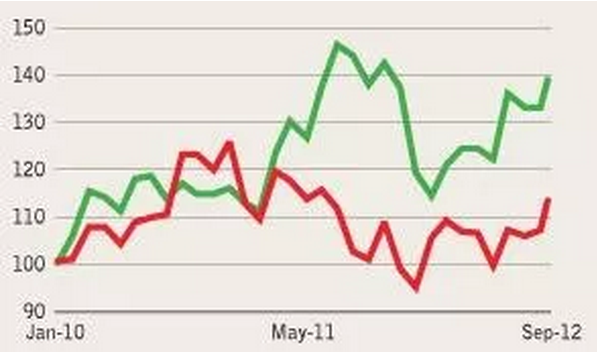Ups and downs
The Burmese kyat exchange rate on Friday was at 1,030 kyat to US$1, and 1,170 kyat to 1 Euro. The price of gold is selling for 682,700 kyat per tical and buying for 683,700 kyat per tical.
Japan bank opening account in Burma
Japanese multinational Sumitomo Mitsui Banking Corporation (SMBC) will be opening its first branch in Burma this year, offering deposit and lending services for businesses operating in the country. With growth estimates of 7.75 percent for Burma’s economy for 2015, SMBC said it will offer cash management services to meet growing demands for financial services. A recent UN survey revealed only 4 percent of Burma’s citizens had savings accounts and less than 20 percent had access to banking services.
Burma to dominate rice export industry
Burma’s Myanmar Rice Miller Co has entered into an agreement with China CAMC Engineering to construct two 200-tonne modern rice mills in Burma by 2017, a move aimed at heading the rice export industry. Burma produces 12.6 million tonnes of rice annually with export volume over 1 million tonne, but now targets to reach 2 million tonnes in rice export in 2015, and 4 million tonnes by 2020. Thai Rice Exporters Association’s inspection in Burma estimated up to 8.5 million acres of land – in addition to existing farmland – could be developed.
Officials meet in bid to boost India-Burma trade
Burma’s Vice-president Nyan Tun met with Indian Minister of State for Commerce and Industry Nirmala Sitharama in Naypyidaw on Tuesday when they discussed strategies to promote business between the two countries, including the transportation of people and commodities, expansion of marine trade, and the creation of “border trade camps”, according to reports in Burmese state media.
Tobacco duties set to rise
Taxation of alcohol, cigarettes and tobacco products is set to increase in the new fiscal year starting in April. Amendments to the Union Taxation Bill will see duties increase from 100 to 120 percent on cigarettes, and from 50 to 60 percent on tobacco. Burma is a signatory to the World Health Organisation’s Framework Convention on Tobacco Control, but is reported to be significantly underachieving in meeting its responsibilities to limit tobacco use, as set out in the convention.
[related]
Burmese army convoy hit by mine
A Burmese army convoy suffered a mine attack in which two government soldiers were injured in Muse, northern Shan State, on Wednesday afternoon. A Muse police official told DVB that the convoy was travelling on the road to the town of Namhkam when it was hit by the explosion near Saikhao village, about five miles to the west of Muse town. The two servicemen, who are currently receiving care in a local hospital, sustained wounds to their faces and legs in the attack. The full extent of their injuries is not yet known.
India holds on to Burma’s pharma industry
India has launched a pharmaceutical and healthcare exhibition in Burma to forge greater business links between the two nations. Burma’s pharmaceutical market is currently valued at more than US$700 million, with India holding a market share of more than 45 percent. The exhibition aimed to explore opportunities to share the latest innovations in the pharmaceutical and medical fields.
Banned food dyes found in school snacks
Burma’s Ministry of Health has blacklisted 11 food brands that have been found to contain prohibited dyes. Banned colourings such as Orange II, Rhodamine B, Sudan III and Auramin O, which do not adhere to the regulatory standards of the 1997 National Food Law, can be found in snacks like candy, goat jerky, pickled tea leaves and fermented fish, which are widely sold at schools in Burma.
Drug resistant malaria is a threat for Burma, the world
Drug resistant malaria has been found across Burma, risking a global crisis if it moves into India or Africa. Ranked as the country with the worst burden of malaria in its region, AFP reports that Burma, along with Thailand and Bangladesh, sees a lot of cases that have mutated to be immune to the frontline drug artemisinin. The World Health Organisation has suggested replacing artemisinin-only treatments with combination therapies to prevent the spread of drug resistance.



